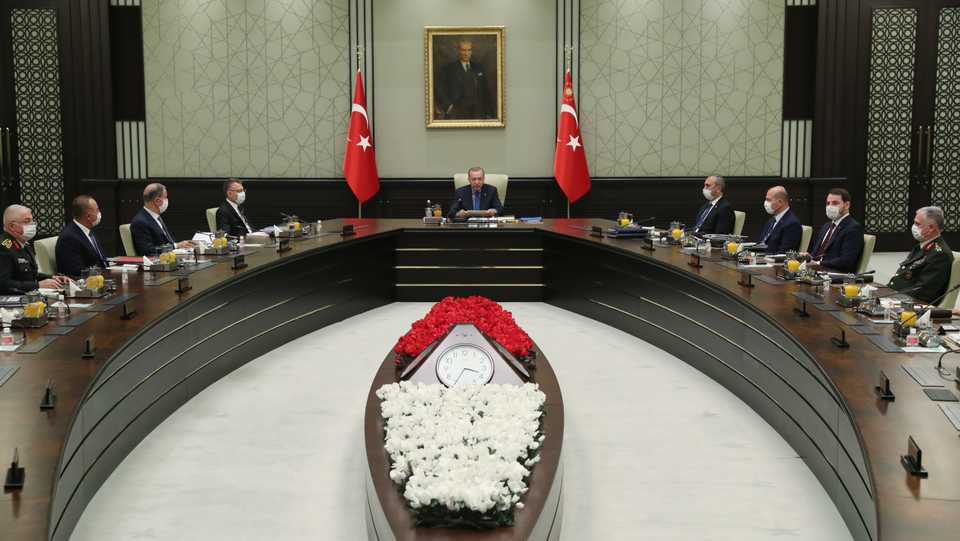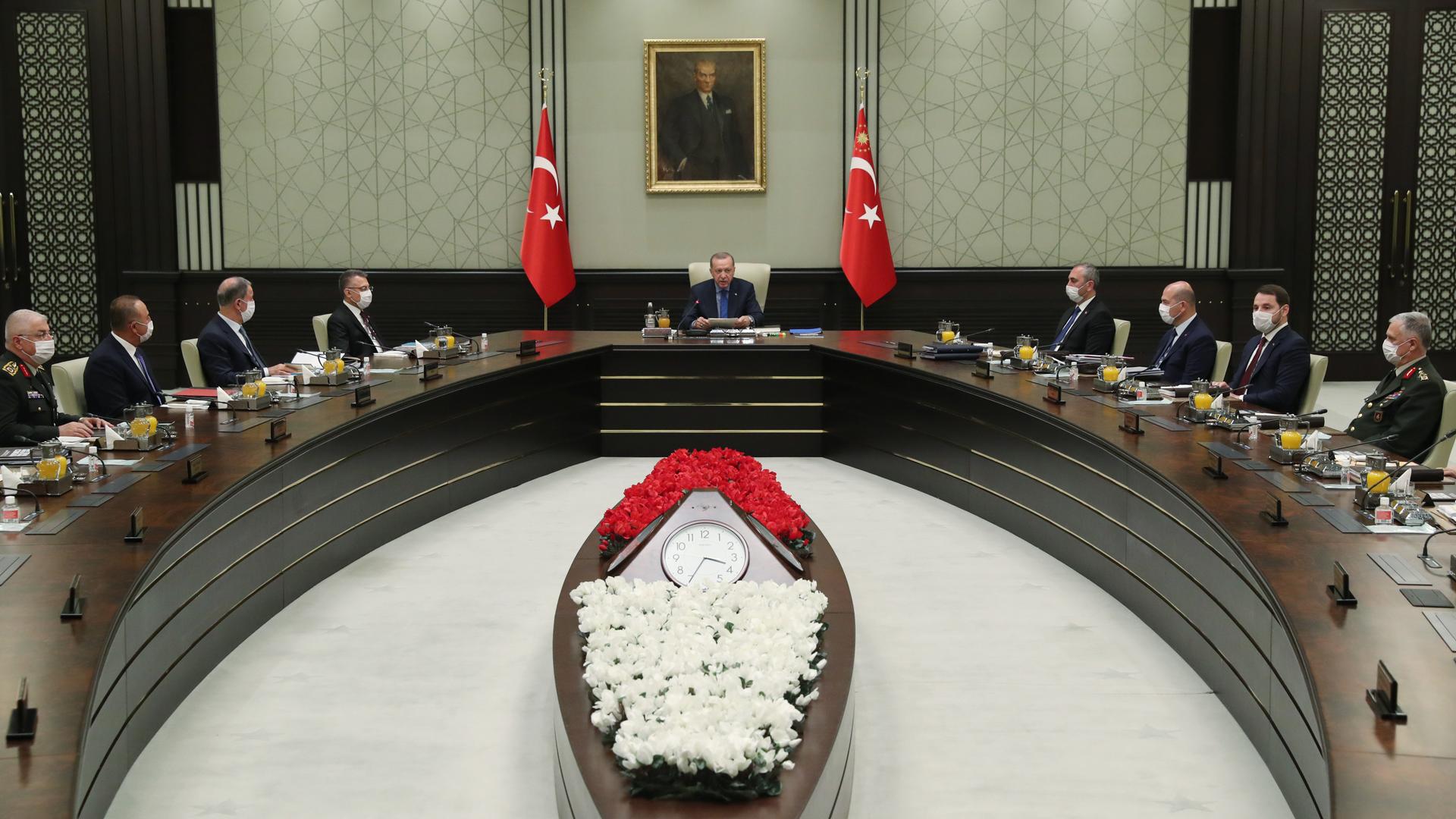
Turkey will continue protecting its rights and interests in the Mediterranean without any compromise, the country’s National Security Council said on Tuesday.
“The negative approaches of some actors, who have come together around the common denominator of animosity towards Turkey, to the legitimate and legal steps Turkey takes in the Mediterranean were evaluated. It was stated that our country’s rights, relations and interests on land, at sea and in the air will continue to be protected without any concession,” the council, headed by President Recep Tayyip Erdogan, said in a statement issued following its meeting.
Turkey is a guarantor nation for the Turkish Republic of Northern Cyprus (TRNC) and has consistently contested the Greek Cypriot Administration’s unilateral drilling in the Eastern Mediterranean, asserting that the TRNC also has rights to the resources in the area.
In 1974, following a coup aimed at the annexation of Cyprus by Greece, Ankara had to intervene as a guarantor power. In 1983, the TRNC was founded.
Additional oil exploration and drilling activities
Separately Turkey’s Foreign Ministry spokesman Hami Aksoy said Turkish Petroleum Corporation’s recent application for a permit for additional oil exploration and drilling activities in the East Mediterranean is within the boundaries of the UN’s continental shelf for Turkey.
Following Aksoy’s statement, Cagatay Erciyes, a senior Turkish Foreign Ministry official shared two maps that one shows areas in the Eastern Mediterranean in connection with Turkish Petroleum’s recent request for new offshore survey and exploitation licenses.
The second map also shows Turkey’s continental shelf and the borders of its Exclusive Economic Zone (EEZ) in the Eastern Mediterranean that were declared to the UN.
With regard to @MFATurkey statement QA-43
— Çağatay Erciyes (@CErciyes) June 2, 2020
Turkey’s CS/EEZ boundaries in the Eastern Mediterranean as declared to the UN https://t.co/512LyHpAwo Turkish Petroleum’s recent request for new off-shore survey and exploitation licences covers areas within these boundaries. pic.twitter.com/6490J5reKO
Fight against terrorism
The council said Turkey will resolutely continue its fight against terrorism with its operations both inside and across the border.
“Reiterating Turkey’s determination to maintain without any concession the multifaceted works it carries out for the preservation of Syria’s territorial integrity, clearing the region of terrorist organizations and enabling Syrians to safely and voluntarily return to their country in a dignified manner, the statement noted that the international community was called on to support these efforts of Turkey,” it added.
Since 2016, Turkey has launched three successful anti-terror operations across its border in northern Syria to prevent the formation of a terror corridor and enable peaceful settlement by locals: Euphrates Shield (2016), Olive Branch (2018), and Peace Spring (2019).
In its more than 30-year terror campaign against Turkey, the PKK – listed as a terrorist organisation by Turkey, the US and EU – has been responsible for the deaths of 40,000 people, including women, children, and infants. The YPG is the PKK’s Syrian offshoot.
Libya
Regarding current developments in Libya, the council said Turkey will continue providing military consultancy to Libya’s legitimate government.
Libya’s internationally recognised government, also known as the Government of National Accord, has been under attack by warlord Khalifa Haftar’s militias since April 2019.
Libya has been torn by civil war since the ouster of late ruler Muammar Gaddafi in 2011. Libya’s new government was founded in 2015 under a UN-led agreement, but efforts for a long-term political settlement failed due to the military offensive by Haftar’s militants.
Coronavirus pandemic
The meeting also underlined the success of Turkey’s health, economy, food, technology, public order and security during the fight against the coronavirus pandemic.
Since first appearing in China last December, the novel coronavirus has spread to at least 188 countries and regions.
The US, Brazil, Russia and several European countries are currently the hardest hit in the world.
The pandemic has killed over 376,800 people worldwide, with more than 6.31 million confirmed cases, while recoveries surpassed 2.72 million, according to figures compiled by the US’ Johns Hopkins University.










Discussion about this post